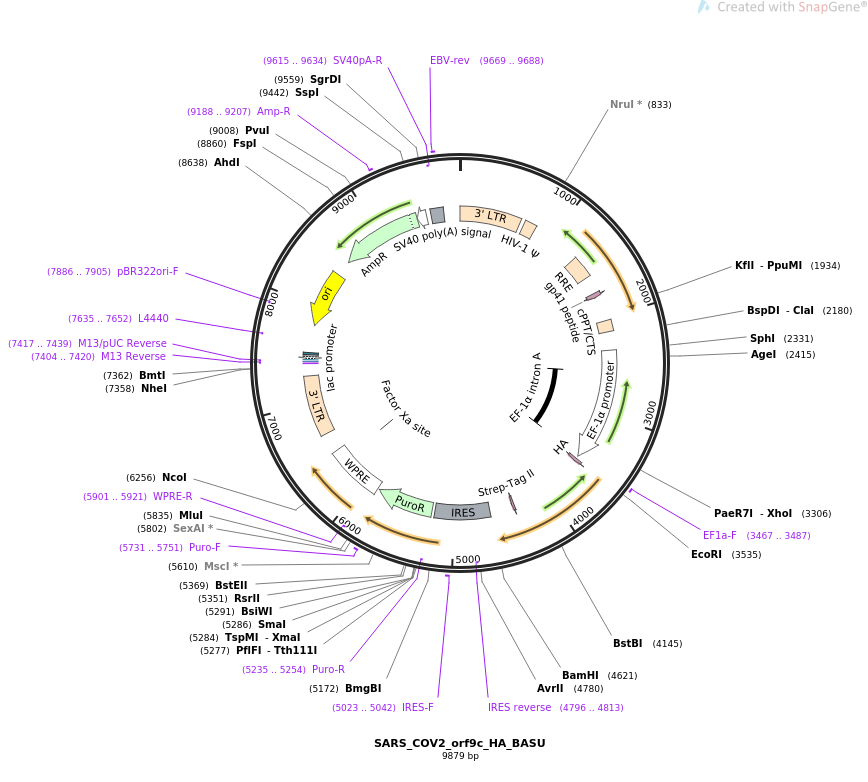SARS_COV2_orf9c_HA_BASU
(Plasmid
#153991)
-
PurposeExpress Orf9c gene along with HA and BASU
-
Depositing Lab
-
Sequence Information
Ordering
| Item | Catalog # | Description | Quantity | Price (USD) | |
|---|---|---|---|---|---|
| Plasmid | 153991 | Standard format: Plasmid sent in bacteria as agar stab | 1 | $85 | |
Backbone
-
Vector backboneEF1-alpha-promoter
-
Vector typeMammalian Expression, Lentiviral
Growth in Bacteria
-
Bacterial Resistance(s)Ampicillin, 100 μg/mL
-
Growth Temperature37°C
-
Growth Strain(s)NEB Stable
-
Copy numberHigh Copy
Gene/Insert
-
Gene/Insert nameorf9c
-
SpeciesSevere acute respiratory syndrome coronavirus 2
Cloning Information
- Cloning method Restriction Enzyme
- 5′ cloning site Unknown (unknown if destroyed)
- 3′ cloning site Unknown (unknown if destroyed)
- 5′ sequencing primer EF1a-F (Common Sequencing Primers)
Resource Information
-
Supplemental Documents
Terms and Licenses
-
Academic/Nonprofit Terms
-
Industry Terms
- Not Available to Industry
Trademarks:
- Zeocin® is an InvivoGen trademark.
These plasmids were created by your colleagues. Please acknowledge the Principal Investigator, cite the article in which the plasmids were described, and include Addgene in the Materials and Methods of your future publications.
-
For your Materials & Methods section:
SARS_COV2_orf9c_HA_BASU was a gift from Paul Khavari (Addgene plasmid # 153991 ; http://n2t.net/addgene:153991 ; RRID:Addgene_153991) -
For your References section:
The proximal proteome of 17 SARS-CoV-2 proteins links to disrupted antiviral signaling and host translation. Meyers JM, Ramanathan M, Shanderson RL, Beck A, Donohue L, Ferguson I, Guo MG, Rao DS, Miao W, Reynolds D, Yang X, Zhao Y, Yang YY, Blish C, Wang Y, Khavari PA. PLoS Pathog. 2021 Oct 1;17(10):e1009412. doi: 10.1371/journal.ppat.1009412. 10.1371/journal.ppat.1009412 PubMed 34597346

